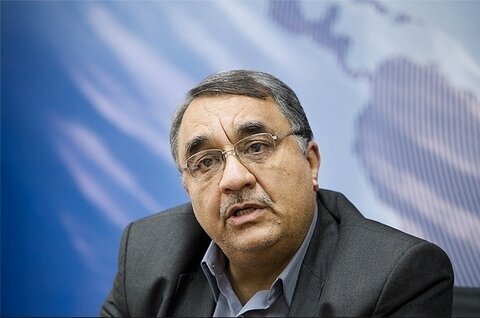Grossi bears great responsibility toward attacks on Iran's nuclear facilities: professor

TEHRAN - A professor of geopolitics says Rafael Grossi, the director general of the International Atomic Energy Agency, is greatly responsible for the attacks on Iran’s nuclear facilities by the Israeli regime and the United States.
“Grossi, as the IAEA director, bears a heavy responsibility regarding attacks on Iran's nuclear facilities,” Abdoreza Faraji-Rad wrote in an article published in the Iran newspaper on June 24.
Israel started attacks on Iran on June 13, killing a number of Iranian military officials, nuclear experts and attacked the nuclear sites in Fordo, Natanz and Isfahan. Rather five a day into the war, the Zionist regime hit the Khondab heavy water reactor.
Also, on June 22, on the dead of the night the United States dropped bombs on the Fordo, Natanz and Isfahan nuclear facilities.
Faraji-Rad, who served as Iran’s ambassador to Norway and Hungary, said, “It seems that Grossi is completely coordinating with the Israeli regime and Western countries” and “refusing to fulfill his minimum legal role.”
The text of his article, headlined “Grossi has sacrificed the credibility of the IAEA for the West”, is as follows:
In the last two or three decades, the Islamic Republic of Iran has consistently collaborated with the IAEA. These collaborations have been influenced by the approaches, priorities, and political affiliations of the heads of this international body over different periods.
Some of the agency's directors general have attempted to act in accordance with professional and impartial principles based on their legal and technical missions, while others have deviated from impartiality due to political tastes and the preferences of certain countries.
However, what distinguishes Rafael Grossi among all these periods is his manner of engagement and interaction with Iran.
Many analysts believe that his approach has strayed from the legal and regulatory frameworks of the agency, turning into a one-sided and comprehensive collaboration with the West. Grossi not only failed to maintain the prestige and legal standing of the agency but also openly deviated from the obligations and regulations of the Nuclear Non-Proliferation Treaty (NPT).
According to this treaty, countries engaged in peaceful nuclear activities, including enrichment, under the supervision of the agency must be protected from military attacks and threats from other countries. Even if it is assumed that a country has deviated from the agency's regulations or is on the path to acquiring nuclear weapons, according to the agency's legal procedures, military action against that country is not permissible; the violation must first be reported to the Board of Governors and, after examination, referred to the United Nations Security Council if necessary.
Grossi acknowledged that has had unprecedented cooperation with the agency and accepted the highest number of inspections during his tenure. Even in the weeks preceding Israel's military attack on Iran, he stated that the Islamic Republic had not approached nuclear weapons. However, by presenting a comprehensive report containing troubling claims and ambiguities, he effectively paved the way for the adoption of a resolution by the IAEA Board of Governors and thereby played a decisive role in provoking the United States and Israel against Iran.
Undoubtedly, not all causes and motivations for an attack on Iran can be attributed to this report, but its significance and impact on diplomatic and security trends prior to the attack cannot be denied.
Now, following these events, Grossi, as the IAEA director, bears a heavy responsibility regarding attacks on Iran's nuclear facilities, a responsibility he has not only shirked but has also not condemned these blatant violations of international law and regulations.
It seems that Grossi is completely coordinating with the Israeli regime and Western countries, refusing even to fulfill his minimum legal role; an approach that has led to Iran's distrust of the agency and he himself to a point where there is no hope for continued constructive cooperation in the future.
In summary, it can be said that relations between Iran and the agency during Grossi's management are experiencing one of the most difficult and tense periods of bilateral cooperation. Such an approach by the IAEA and Grossi benefits neither international collaboration nor strengthens the non-proliferation regime.
Leave a Comment